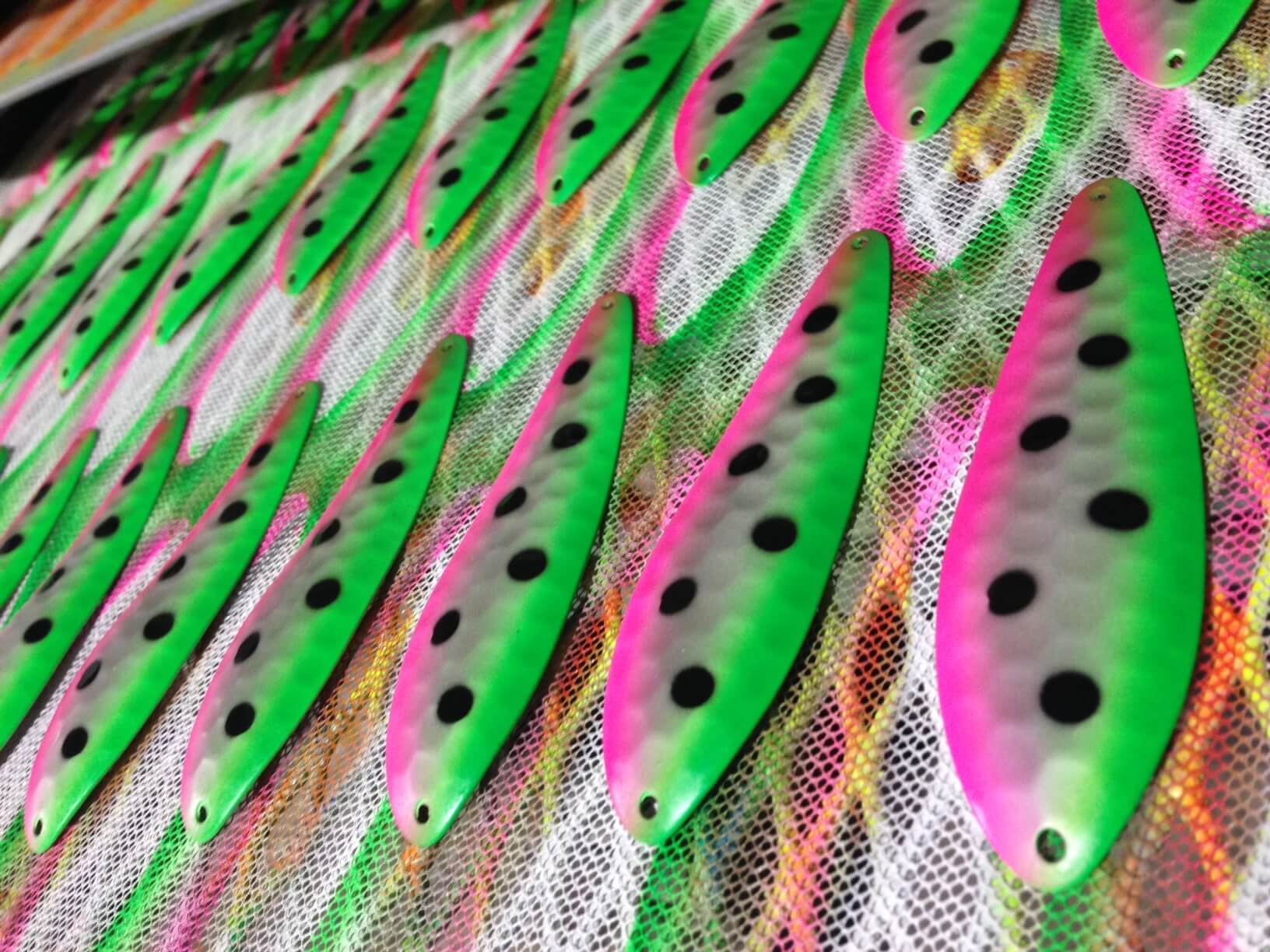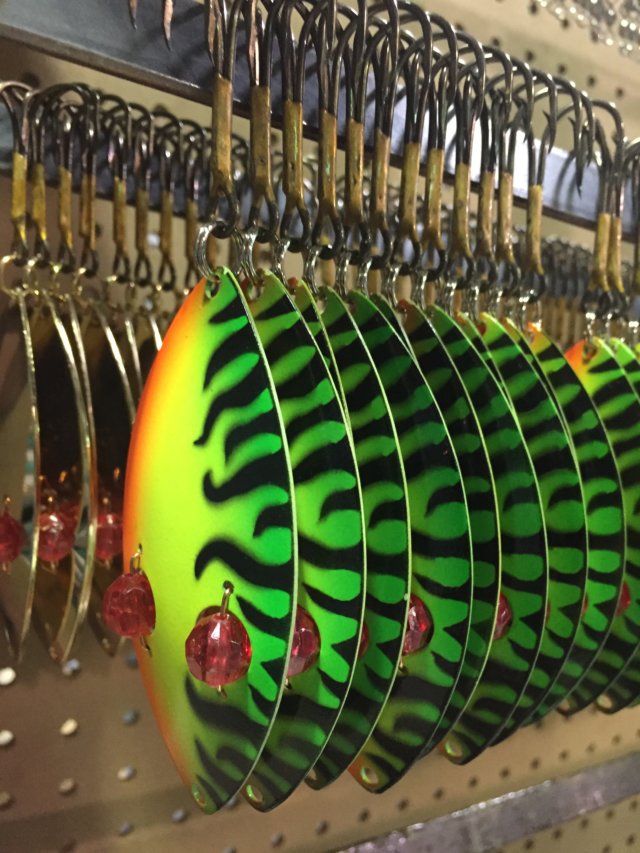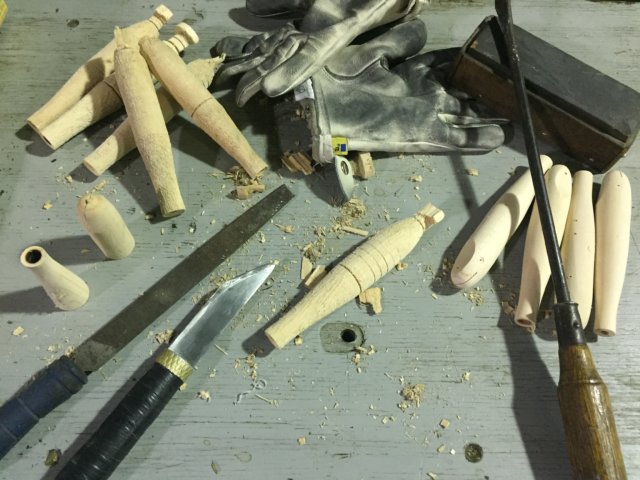-
Headquarters -
2287 Whittington Drive, Peterborough, Ontario K9J6X4
-
Year established -
1929
-
NAICS -
339920 - Sporting and athletic goods manufacturing
-
Major expansions -
1939, 1944, 1970, 1987
-
Employees -
17
-
Exports -
U.S., Great Britain, Scandinavia
-
Download -
Lucky Strike Bait Works Limited
Lucky Strike Bait Works Limited is a leading manufacturer of fishing lures and landing nets. With more than 100 years of experience, the firm has grown into an established business that supplies over 2,000 different products to retailers located all across Canada. Today, Lucky Strike is well-known in the Canadian recreational fishing market for its high-quality products.
Lucky Strike Bait Works Ltd. (Lucky Strike) is a leading manufacturer of fishing lures and landing nets. From its beginnings as one man’s hobby nearly 100 years ago, Lucky Strike has grown into an established business that supplies over 2,000 different products to retailers located all across Canada.
Lucky Strike was founded in 1929 by Frank Edgar in Peterborough, Ontario. As a fishing enthusiast, Edgar would craft his own fishing lures from the ends of wooden broom handles. The craftmanship and effectiveness of his lures quickly caught the attention of other fishermen. Originally selling his lures out of his tackle box, Edgar set up a sales display within the community’s local barbershop. Soon after, a representative from a Toronto-based wholesaler visited that same barbershop. Impressed with Edgar’s products, he issued a bulk order for 10,000 lures.
With the profit generated from that bulk order, Edgar was able to invest in equipment to expand Lucky Strike’s production capacity and product line. Over the years, sales continued to grow, and production eventually moved out of Edgar’s garage and into a dedicated production facility. The company expanded its product line further, adding plastic and metal lures and landing nets. In 1987, Lucky Strike moved into its current 22,000 square-foot facility, where it remains to this day. Leadership of the company has been handed down from generation to generation of the same family. The firm is now in its fourth generation with Edgar’s great-grandson, Dustin Rhodes, heading the company as president.
Today, Lucky Strike’s product line contains approximately 2,000 products, many of which are slight variations of one another in terms of colour and size. New products are constantly being introduced to meet changing market demands. However, Rhodes plans to start phasing out many outdated products to make the company’s product line leaner and more modern. Roughly half of Lucky Strike’s revenue is generated from lures, while the other half is generated from nets.
Notably, the popular lures that Lucky Strike creates cannot be patented, so the firm faces substantial international competition from nearly identical products. Lucky Strike works hard to promote itself as a high-quality and proudly North American company with a long history, which helps it remain successful. It always aims to source materials locally, and only a small subset of its specialty products are imported.
The firm’s production process is highly labour intensive, with many components still unable to be effectively automated. For example, although Lucky Strike owns a digital printing machine (useful for printing small details and customized designs), each lure must be painted by hand as the machine cannot print the required neon colours and is constrained by the curvature of the lures. Thus, the digital machine is mainly reserved for the creation of promotional and custom lures that trade effectiveness for novelty.
Lucky Strike generally works on bulk sets of products in a piecemeal process (e.g., metal lures are stamped from sheet metal on only one day per week). However, Rhodes is trying to shift the manufacturing process away from a “push” system towards a “pull” system, which implements more lean manufacturing practices. Rhodes believes that this change in production strategy will both improve the quality of the products and simplify the company’s resource management, which is an ongoing challenge given the number of products that the business supplies. In addition, from 2016 to 2018, Lucky Strike was able to take advantage of the Canada-Ontario Job Grant to train staff on effective lean manufacturing and supply management practices. So far, these changes have led to better order fulfillment times—a necessity as the firm strives to compete with foreign producers.
Typically, Lucky Strike sells through distributors, with the bulk of its business coming from large retail stores such as Canadian Tire, Walmart, and Bass Pro Shops. The company has also been developing its e-commerce capabilities over the past five years, allowing orders to be placed directly on its website. Currently, sales are primarily limited to Canada, with less than 1 percent of products being exported. Rhodes sees promising growth potential in expanding exports to the United States, as he feels that the Canadian market is almost at capacity. In order to achieve this expansion, Rhodes plans to attend more regional trade shows and build connections with U.S. retailers.
Lucky Strike is “recession-proof," suggests Rhodes, because “if you are laid off from your job, you have more time to go fishing.” This claim is bolstered by reporting and studies from the Great Recession which show that outdoor recreational sales surged during times of high unemployment.
At present, Lucky Strike has 17 employees, many of whom have been with the company for over 30 years and are avid fishermen themselves. By offering flexible hours and an outlet for workers to enjoy their hobby, management strives to make the company an interesting and fulfilling place to work. As a result, Lucky Strike has experienced very little employee turnover. As these workers begin to retire, however, Rhodes will begin looking for workers with new technical skills to help the firm adapt to changing equipment requirements as more technology is introduced.
With a strong and active presence in the fishing community, Lucky Strike is often a sponsor for contests and tournaments, of which there is one scheduled for every long weekend throughout the summer. The company also sponsors many children’s fishing events all over the country, hoping to appeal to the next generation of fishers.
Lucky Strike is also an active member of many local industry associations, including the Canadian Federation of Independent Business, Community Futures Peterborough, and Canadian Manufacturers & Exporters. In addition, Rhodes sits on the board of the Kawartha Manufacturers Association.
Lucky Strike has been able to benefit from select targeted funding initiatives, including the Canadian Manufacturers and Exporters’ SMART program and the above-mentioned Canada-Ontario Job Grant. However, Rhodes has found that approval criteria for many funding programs are often obscure and ambiguous, and that application denials usually lack an explanation. He believes that this uncertainty and arbitrary rejection discourage many manufacturers from applying to programs that they would otherwise qualify for.
Rhodes hopes that in the future, Lucky Strike is able to continue to promote itself as a strong North American brand. If metal stamped lures fall out of favour or the firm’s suppliers close operations, Lucky Strike will have to adapt by importing more goods and materials from foreign countries—a move which could negatively impact its “proudly North American” image. Regardless, Lucky Strike is sure to reel in additional sales through improving its supply management techniques and by casting a wider net into the U.S. market.
For more information about Lucky Strike Bait Works Limited, visit their website!.
Published: September 23, 2019
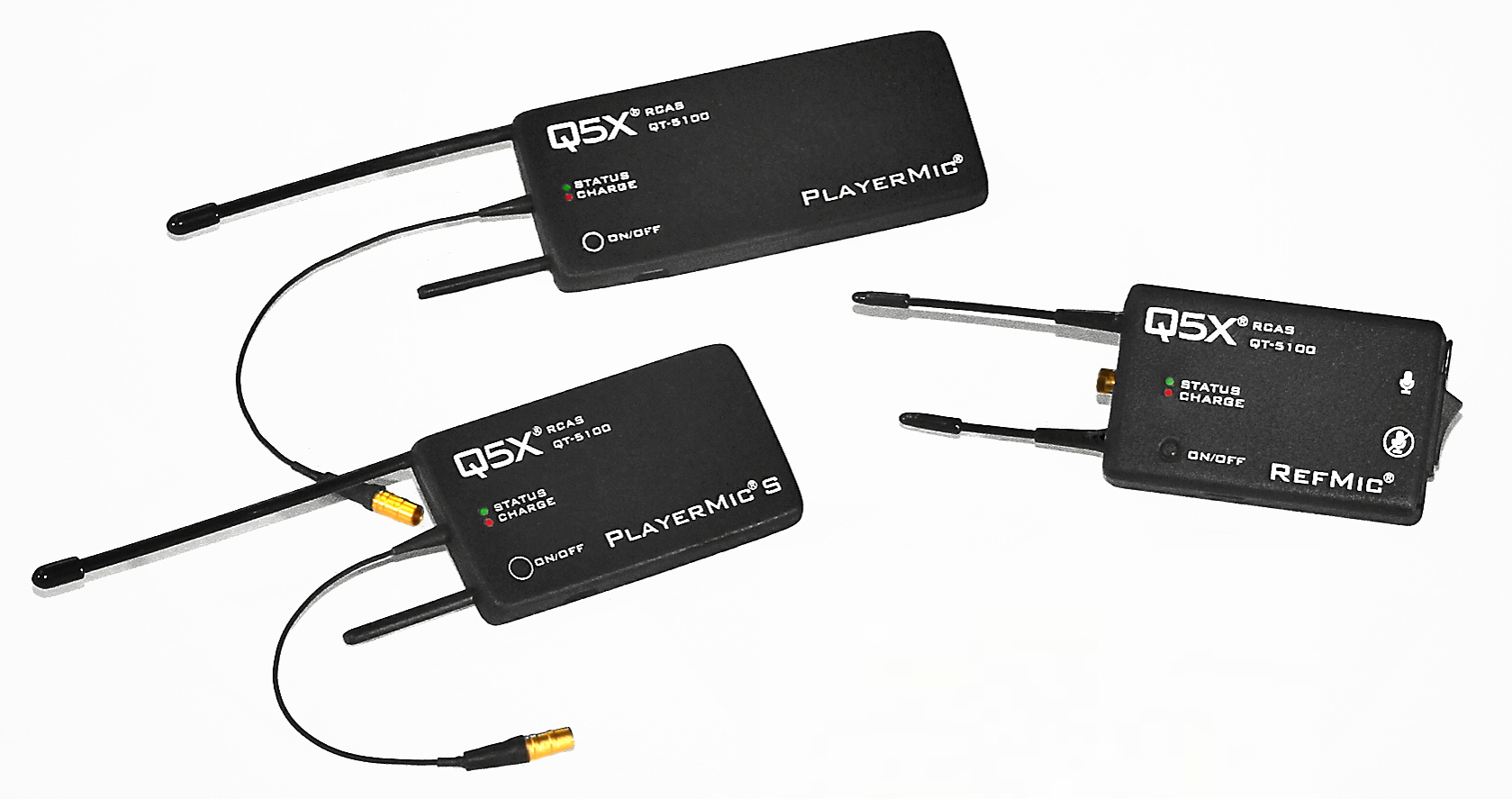
Quantum5X
Quantum5X (Q5X) is a privately owned corporation that specializes in wireless solutions for challenging audio problems in sports, broadcast and entertainment.

Creative Education of Canada
Creative Education of Canada manufactures educational toys and costumes for children. Most notably, the firm produces Great Pretenders’ award-winning dress-up costumes.

Mosaic Manufacturing
Mosaic Manufacturing revolutionized the world of desktop 3D printers with the "Palette", an accessory for 3D printers that enables them to create multi-colour and multi-filament objects.
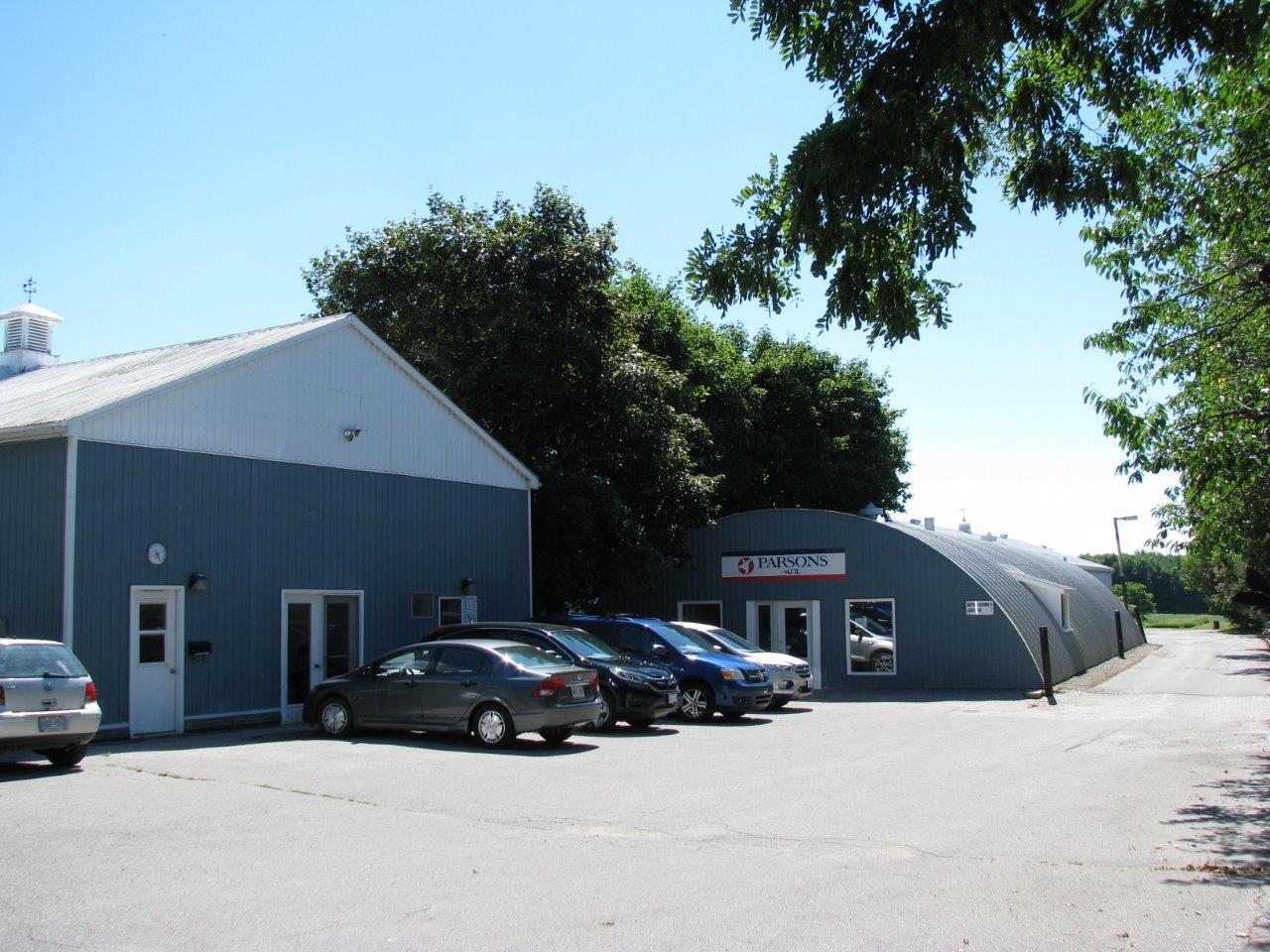
Parsons ADL
Located in New Tecumseth, Ontario, Parsons ADL is a manufacturer of home health care products. The company strives to create innovative solutions that will help improve the quality of life for the ageing population, as well as individuals with disabilities.

Pan-Oston Limited
Pan-Oston is a leading manufacturer of metal retail fixtures, best known for producing checkout lanes. The firm is a founding member of a cooperative organization, Complete Retail Solutions (CRS), which joins together best-in-breed manufacturers of complementary retail fixtures to create a stronger presence in the industry than any one member would have individually. Halfway through a five-year strategic plan, Pan-Oston is revamping to remain ahead of the curve of an evolving retail environment with implications in market conditions, consumer preferences, and e-commerce.
